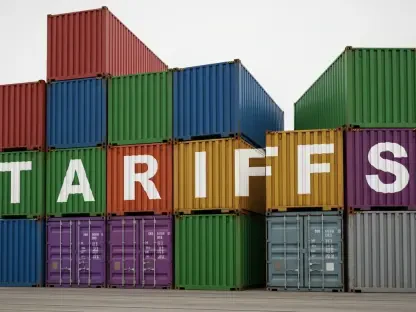The recent strike initiated by over 2,100 workers at DHL Express Canada has sparked widespread concern regarding its potential impact on key deliveries across the nation. This labor dispute erupted after DHL implemented a lockout on its employees amidst unresolved contract negotiations, marking a significant turning point in discussions that have been unfolding for a considerable period. At the heart of the discord are two primary issues plaguing workers—demands for improved wages and better working conditions. The union, Unifor, unlike DHL, argues against proposed changes that could diminish pay for owner-operators. With negotiations hitting a stalemate, DHL has reportedly activated contingency plans to ensure operations continue unhampered. However, the specifics of these measures remain undisclosed, leaving customers and stakeholders anxious about possible disruptions.
The Stakes for DHL Express Canada
The implications of the labor unrest extend beyond mere logistics operations and touch on the broader challenges faced by DHL Express Canada in balancing employee satisfaction with financial sustainability. Striving to offer competitive compensation, DHL is confronted with navigating an economic environment robust with uncertainties. The strike casts a spotlight on the opposing priorities between the company and its workforce, further complicated by external pressures in an increasingly competitive industry. Company spokespersons have projected confidence in maintaining smooth logistics chains by downplaying the anticipated disruptions of the ongoing strike. Yet, as many are keenly aware, labor actions of this magnitude invariably bear the potential to reverberate through intricate supply networks.
In light of these dynamics, there is an urgency for DHL to reconcile with its staff. This urgency is underlined by the critical need for DHL Express Canada to maintain its reputation as a dependable logistics provider amidst the turbulence. As demands for better pay and conditions persist, the company’s current strategies focus on mitigating any short-term interruptions. However, achieving long-term peace necessitates constructing a solution that convincingly addresses employee contentions while sustaining DHL’s strategic interests. Meanwhile, Unifor has heightened the stakes by emphasizing that key DHL clients, including high-profile businesses and events, stand to witness potential adverse effects if negotiations persist without resolution. This emerging scenario underscores the broader repercussions that may arise from unresolved labor disputes in logistics.
Broader Industry Impacts and Challenges
The ripple effects of this labor dispute could resonate throughout the entire Canadian logistics sector, given the interconnectedness of the industry. Key DHL clients, such as Temu, Shein, Lululemon, and Siemens Canada, might experience noticeable impacts on their logistics flows as DHL struggles to balance operations amidst the strike. Even more pressing is the threat of logistical disruptions to the Canadian Grand Prix in Montreal. DHL is a critical player in transporting Formula One vehicles, raising alarms about possible impediments to the timely execution of such high-profile events. The uncertainty surrounding the strike’s duration and impact fuels speculation about alternative strategies that companies may need to adopt.
Added to these immediate concerns, the labor unrest at DHL occurs at a time when the parcel delivery sector in Canada is already contending with another labor dispute. Canada Post workers are enforcing an overtime ban as part of their pursuit of a new labor contract, a condition that compels other service providers like UPS and FedEx to deal with heightened competitive pressures. Incidents like these reveal underlying frictions affecting labor relations across the logistics industry. The convergence of these factors suggests that parcel delivery services are under greater pressure than ever to adapt swiftly and ensure operational resilience.
Navigating Forward: The Path Ahead
The labor unrest at DHL Express Canada highlights challenges beyond logistics, involving balancing employee satisfaction with financial sustainability. While aiming to provide competitive pay, DHL faces economic uncertainties impacting this balance. The strike underscores the clash between company goals and workforce demands, complicated by competitive pressures in the industry. Despite spokespersons projecting confidence in maintaining logistics, such labor unrest can disrupt complex supply networks. There’s urgency for DHL to reconcile with staff, crucial for maintaining its reputation as a reliable logistics provider. Temporary strategies aim to minimize disruptions, but long-term peace requires solutions that address employee concerns while aligning with DHL’s strategic goals. Unifor, representing the workers, raises stakes by emphasizing the potential impact on major clients, including well-known businesses and events, if negotiations persist unresolved. This situation illustrates the broader consequences of unresolved labor disputes in logistics, highlighting the critical need for resolution.









